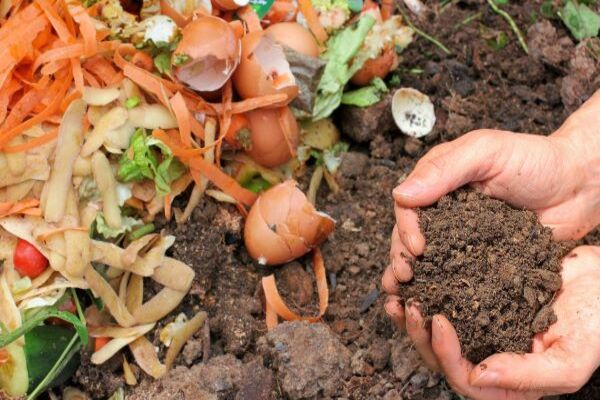
Composting at Emory
The Emory Recycles program recycles glass, paper, aluminum, cardboard, C&D waste, scrap metal and collects food waste and animal bedding for composting. The program’s primary goal is to support Emory’s Zero Landfill Initiative of 95% landfill diversion by 2025.
About the Program
"Over one-third of the food produced in the United States is never eaten, wasting the resources used to produce it and creating a myriad of environmental impacts. Food waste is the single most common material landfilled and incinerated in the U.S., comprising 24 and 22 percent of landfilled and combusted municipal solid waste, respectively. Reducing and preventing food waste can increase food security, foster productivity and economic efficiency, promote resource and energy conservation, and address climate change."
Market conditions may preclude recyclables and organic materials from being diverted from landfills. Emory contracts with a waste management firm that uses due diligence with contracted downstream vendors to attempt to divert materials, whenever possible, from landfills.
-EPA "From Farm to Kitchen: The Environmental Impacts of U.S. Food Waste"
What Do We Compost?
- Compostable food containers, films, and waste liners
- Compostable bowls, plates, cups, and cutlery
- Cork
- Tea bags
- Wooden beverage stirrers
- Pre- and post-consumer food discards including but not limited to vegetables, fruits, grains, dairy products, meats/bones, and seafood
- Soiled paper products like coffee and drink cups, paper to-go containers, and napkins
- Tea bags
- All beverages
- BPI and/or ASTMD6400 or ASTMD6868 compostable food service ware/packaging that may be commingled with any food scraps
- Leaves, grass clippings, brush, compostable garden materials
- Trees, tree trunks, tree stumps, holiday trees, flowers, and seeds
- Natural mulch, straw, pine straw, dirt, sawdust, and untreated lumber
- Non-infectious animal bedding
- Fur and feathers
- Hair
- Dryer lint
- Cork
- Natural/cotton fiber
- Tea bags
- Used tissues
- Wood beverage stirrers
- Waxed paper and cardboard
- NO animal waste!